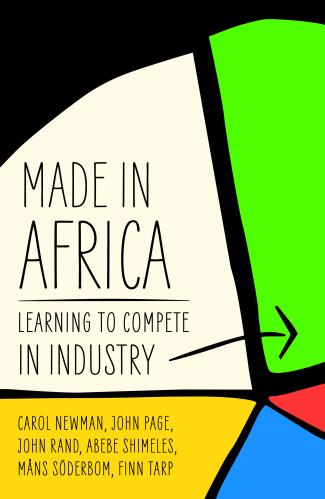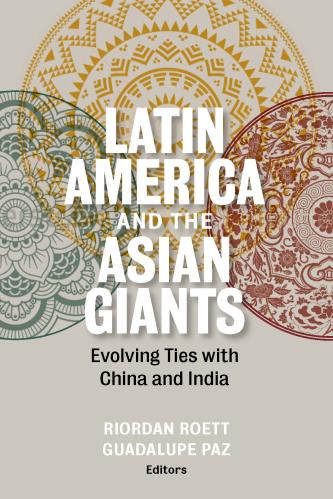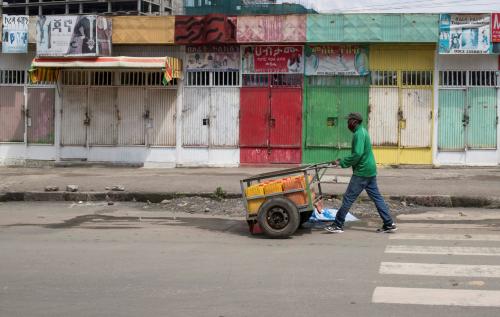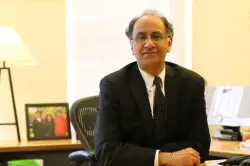Seventeen years ago, The Economist called Africa the hopeless continent. A decade later it ate its words, and popularized a new slogan: Africa rising. In 2013, to erase any doubts about its opinion about Africa, the magazine headlined its special report, A hopeful continent.
Optimism has pervaded prognostications about Africa for more than a decade. In 2014, this was the title of an article about the International Monetary Fund’s World Economic Outlook: The IMF says the World is in a Mess – But Not Africa. In his 2015 book, economist Steve Radelet pointed out that Africa is less poor, less sick, better educated, and better governed than ever before; incomes and investment are rising, debt and inflation are down, and civil conflict is subsiding. In 2016, McKinsey doubled down, ignoring rumors that the continent’s largest economy, Nigeria, would need help from the IMF and the World Bank, it declared Africa’s economic fundamentals strong.
The IMF and the World Bank are putting on a brave face. Last September, the IMF forecast Africa’s growth at less than 2 percent, highlighting that several countries were expected to grow at about 6 percent before allowing that the region’s three biggest economies—Nigeria, South Africa, and Angola—would do really badly. A month later, an article in The New York Times figured that “Africa Reeling” would be a better headline for the region. But in April 2017, the World Bank exclaimed that economic growth in sub-Saharan Africa is projected to rebound to (wait for this…) 2.6 percent in 2017. The population in Africa grows by about 2.7 percent every year.
You can get whiplash reading this stuff.
African Drama
The real action is in Asia. Kenan Karakülah, my colleague here at the Duke Center for International Development, made Figure 1 using data for 1960-2016 from the World Bank’s World Development Indicators. Back in 1960, East Asia and Africa had pretty much the same per capita income of about $1000 (in 2010 dollars). Today, East Asians have incomes about six times those of Africans.
This did not surprise us; we knew we’d have to put a break in the y-axis to put East Asian per capita income in the same figure as Africa and South Asia. What surprised us was that for the first time last year, the average person in South Asia—a region that includes Afghanistan, Bangladesh, and Nepal—began enjoying an income greater than the average African.
Figure 1: Last Year, South Asia overtook Africa GDP per capita (constant 2010 US$): 1960-2016
Back in 1960, South Asia’s per capita income was a little more than a quarter of Africa’s. Asia used to be the biggest development challenge not that long ago. That year, Swedish sociologist Gunnar Myrdal wrote a famously pessimistic book about poverty in South Asia. If you doubt that it was about a hopeless part of the world, here is an excerpt:
If in a country like India the government were really determined to change the prevailing attitudes and institutions, and had the courage to take the necessary steps and accept the consequences, then these would include the effective abolition of caste, prescribed by the constitution, and measures… such as effective land reform and tenancy legislation; a rational policy for husbandry, even if it required the killing of many half-starved cattle; the eradication of corruption at all levels… forceful attack on the problem of the educated unemployed and their refusal to do manual work, and so on.
Hopelessness is arguing that the only way development would happen in South Asia is if India were casteless and uncorrupt, land tenure were effectively reformed, and you could freely kill cows and get educated people to do manual work. Fortunately, Myrdal was wrong.
Here’s a thought. Someone should write a book insisting that African countries would prosper only if their governments were uncorrupt, all tribes were abolished, the cattle were well fed, and their elites did manual labor. If the book were called “African Drama,” maybe we wouldn’t need a new slogan every few years.
The Brookings Institution is committed to quality, independence, and impact.
We are supported by a diverse array of funders. In line with our values and policies, each Brookings publication represents the sole views of its author(s).










Commentary
Future Development Reads: The brittle consensus on Africa’s prospects
July 21, 2017